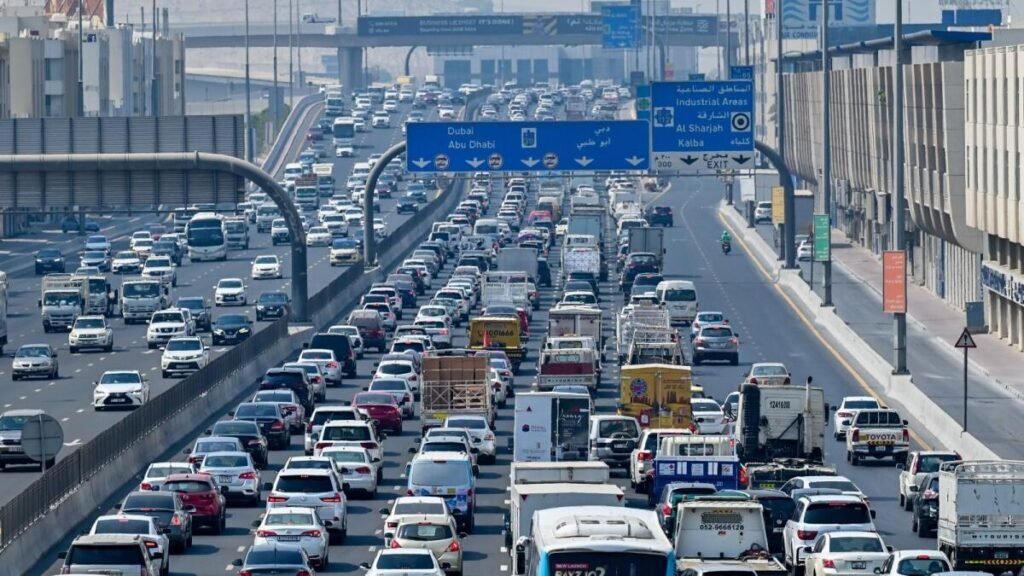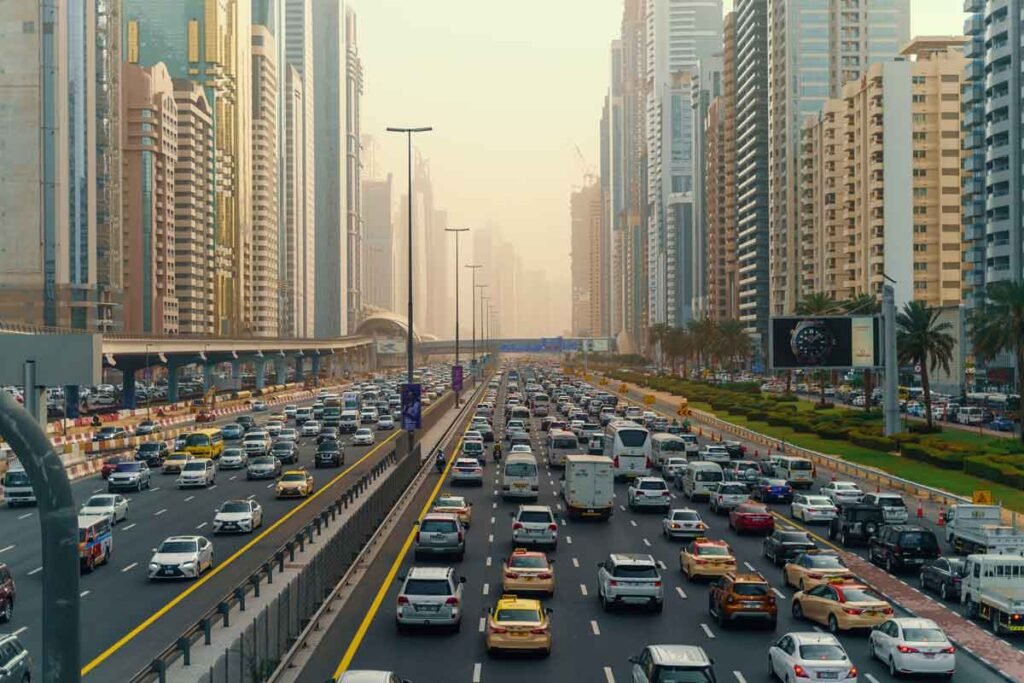The Dubai Government has unveiled a forward-thinking initiative to tackle one of the emirate’s most pressing issues: traffic congestion. By embracing flexible working hours and remote work policies, Dubai aims to reduce peak-hour traffic and improve mobility across the city.
This decision follows surveys conducted by the Roads and Transport Authority (RTA) and the Dubai Government Human Resources Department (DGHR). The surveys, which collectively involved over 332,000 employees, revealed significant potential for traffic reduction through policy changes in the public and private sectors. These findings have become the foundation of Dubai’s newly approved Traffic Flow Plan, part of its broader goal to enhance the emirate’s quality of life and economic efficiency. Dubai Wants You To Work From Home.

For a complete practical guide to life in the Emirates, explore our full Living in the UAE hub.
Survey Findings: Remote Work’s Role in Traffic Management
The surveys presented compelling evidence that remote work and flexible hours could significantly alleviate congestion. A flexible start-time policy, allowing a two-hour window for employees to begin their workday, was shown to reduce traffic volumes by as much as 30% during peak hours.
Key statistics include:
- 9.8% traffic reduction on Sheikh Zayed Road if 20% of employees work remotely.
- 8.4% decrease on Al Khail Road under the same scenario.
- Flexible hours alone could cut traffic on major roads by an additional 5-6%.
Additionally, the surveys noted that 32% of private companies already implement some form of remote work, with 58% expressing willingness to expand these policies. On the flexible hours front, 31% of companies have already adopted the practice, with 66% of non-participating firms open to implementation.

Public Sector Leading the Way
The public sector has already embraced remote work with significant success. Currently, 80% of government entities offer employees the option to work remotely twice a week, underscoring the adaptability of public organisations in leading by example.
The survey found that 80.4% of employees working remotely believe their productivity matches in-office levels, while 90% report no issues with connectivity or communication. These findings highlight the feasibility of remote work as a long-term solution for traffic management and business continuity.

Expanding Sustainable Transport Options
In addition to encouraging remote work, Dubai’s plan incorporates a host of complementary traffic demand management measures:
- Truck movement restrictions to minimise congestion during peak hours.
- Dedicated bus and taxi lanes to improve the efficiency of public transport.
- First and last-mile connectivity options, such as scooters and e-bikes, to encourage alternatives to private vehicles.
- Carpooling programmes aimed at reducing the number of single-occupancy vehicles on the road.
His Excellency Mattar Al Tayer, Commissioner General for the Infrastructure, Urban Planning, and Well-Being Pillar, emphasised the importance of these initiatives in balancing transport demand across time and location, fostering sustainable urban mobility.

A Step Towards the Future
These policies are part of Dubai’s vision to become the world’s best city to live and work in, fostering community well-being and economic growth. His Excellency Abdulla Ali bin Zayed Al Falasi, Director General of DGHR, highlighted Dubai’s commitment to pioneering innovation and flexibility in the workplace.

“Since its adoption in 2020, the remote work system has become integral to the corporate culture of most government entities,” said Al Falasi. “The findings reflect Dubai’s readiness for future transformations, establishing it as a hub for talent and innovation.”

The Road Ahead
With the adoption of these measures, Dubai is poised to create a more efficient, sustainable, and liveable city. The integration of flexible work policies with advanced urban planning exemplifies the emirate’s innovative approach to tackling challenges and achieving its ambitious vision for the future



